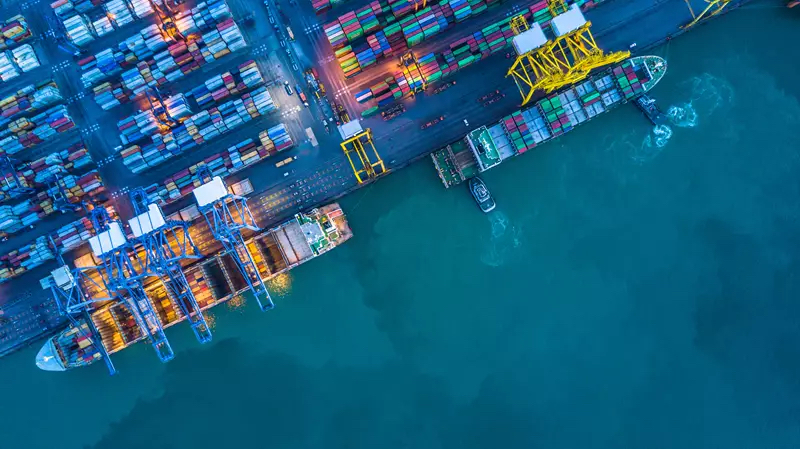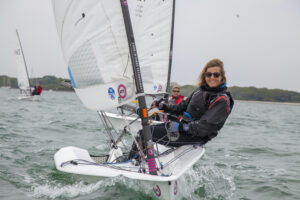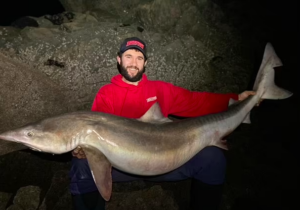Project to tackle composites recycling gains pace

The National Composites Centre has launched a Blue Composites Project in an effort to address the growing challenge of decarbonisation and recycling of composite materials in the marine industry. It aims to create the UK’s first glass fibre composites ‘recycling and re-use’ facility of its kind.
The Blue Composites Project was announced by Blue Parameters at The Green Tech Boat Show on Thursday 16 June as part of the Clean Maritime Innovation Showcase.
Blue Parameters marine consultancy is leading the collaboration between marine and maritime companies, composites specialists, academic institutions and local government organisations. The project will look at the process of recycling composite materials and how the reclaimed materials and fibres could be repurposed for use in new composite components, such as boats, caravans, wind turbine blades and other high-performing products.
There are an estimated six million boats in the EU alone, 95 per cent of which are made of GRP. Every year, around 1-2 per cent (60,000-120,000) of these boats reach the end of their useful life. Of these, only 2,000 are recycled, while 6,000-9,000 are abandoned, says the National Composites Centre.
Recycling old boats is an expensive business, costing an estimated £706 for a 7m boat, rising to £1,324 for 10-12m, and up to £13,243 for boats over 15m. MIN reported, in Feb 2020, on the ‘sloping shoulders’ attitude of the marine industry to the recycling challenge and asked who would take the lead?
Simon de la Rue, director of Blue Parameters, says: “We’ve been delighted with the response from both the marine industry and other sectors. This is an opportunity to implement the technology available to further the LCA process and have a significant reduction in environmental impact.”
According to the International Marine Organisation (2017), it is both GRP waste from production processes and end-of-life products that are a huge challenge, with the UK marine industry producing around 55,000 tonnes of GRP waste every year. That level is expected to increase by 10 per year.
Reinforced plastics used for ship structures are composed of glass fibres embedded in unsaturated polyester resins. Properties of GRP that are particularly useful for marine, and have led to their extensive use for small boats (up to 34m), are high strength-to-weight ratio combined with good resistance to deterioration upon prolonged exposure to sea water. Lower maintenance costs for GRP hulls compensate for their relatively high initial cost as compared with steel or wood.
The technology of focus for the Blue Composites Project is the revolutionary Deecom process, developed by British SME B&M Longworth. Originally designed to remove waste polymer from plastics filters and production equipment, the process uses pressurised superheated steam, to penetrate microscopic fissures in the composite’s polymer. Upon decompression, it expands, cracking the polymer and carrying away broken particles. This pressure swing cycle is then repeated until all the matrix (the material suspended in the polymer) has been separated from the fibre, allowing the monomers to also be reclaimed for possible reprocessing. Crucially, the Deecom process essentially cleans the fibre, leaving the primary component material intact and undamaged, allowing for any length to be retained undamaged, providing much more scope for the material to be re-used in a wider range of applications.
“We’re so pleased to have our Deecom technology recognised as the solution for cross-sector circularity in composites,” says Jen Hill, director at B&M Longworth. “We’ve been calling for a long time for this multi-disciplined approach to tackling FRP waste and we really believe that the impressive line-up of partners and supporters within this consortium are the right people to make it happen. Hopefully this becomes the blueprint for many other plants around the world to tackle waste, produce quality, recycled advanced materials and in turn bring multiple lifecycles to all composites, all while easing the global supply chain shortages.”
B&M Longworth’s Deecom technology has been exclusively licensed by British machine builder and composites technology specialist Cygnet Texkimp. The company is developing it as a tailored solution for the global composites market with applications ranging from marine to wind turbines, automotive, aerospace, rail and construction.
Luke Vardy, CEO of Cygnet Texkimp, says: “The work of the collaboration is ground-breaking in terms of transforming the way we manage marine composite structures at the end of their current life. It provides an excellent platform to accelerate our development of the Deecom technology specifically for the marine industry but will also deliver valuable capability that the entire composites market can learn from in its pursuit of decarbonisation and sustainability goals.”
Other companies that have pledged to support and explore these challenges with Blue Parameters, B&M Longworth, Cygnet Texkimp and the National Composites Centre are: Scott Bader, Ford UK, Oakdene Hollins, British Marine, Gen2Carbon, University of Plymouth, MDL Marinas, boatfolk, Maritime UK South West, Truro Recycling, Royal Yachting Association, Peel Ports Group, South Devon College, and The Green Blue.










